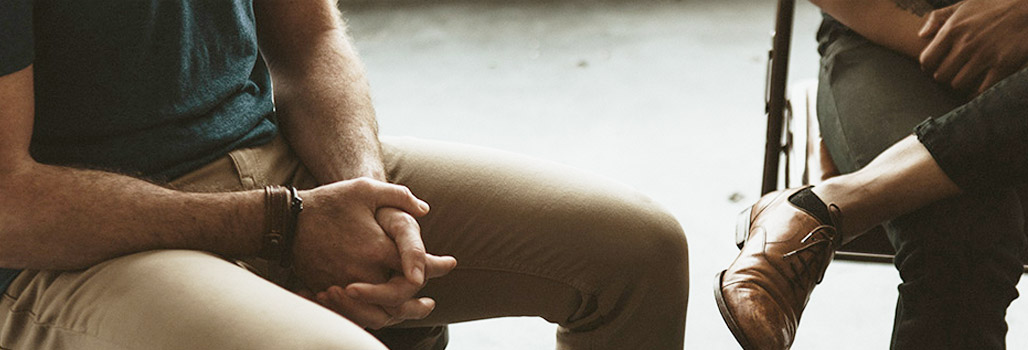Due to the struggles that are associated with alcohol and drug disorders, many individuals do not know where to look for treatment. Through proven rehabilitation therapies, drug and alcohol addiction can be managed for long-term recovery.
In this guide we further explain how an holistic treatment approach can enable you or a loved one to begin and sustain sober living.
What is Addiction Rehab (Rehabilitation)?
Addiction ‘rehabilitation’ is a holistic treatment plan that utilizes both counseling and medical interventions to treat dependencies on both illegal and legal substance addictions. Rehab that is unique to your personal needs is successful when it includes medically supported detox, residential programs, outpatient care and aftercare.

Facts & Statistics about Addiction in San Ramon
Prevalence of Substance Use Disorder, by Drug Type
(IN THOUSANDS)
- 2,7578.5%Any Substance
- 2,0886.4%Alcohol
- 1,0683.3%Ilicit Drugs
- 2060.6%Pain Medication
Drug- and Alcohol-Induced Deaths by Age Group, California, 2016
- Alcohol-Induced
- Drug-Induced
- 18 to 250.5
- 9.6
- 26 to 354.3
- 13.9
- 36 to 6424.2
- 22.9
- 65+23.7
- 9.4
Drug Use, by Selected Type and Age Group California, 2015 to 2016
- 12 to 17
- 18 to 25
- 26+
- Marijuana*13.2%
- 34.0%
- 13.5%
- Misuse of Pain Medications3.5%
- 8.0%
- 4.3%
- Cocaine0.8%
- 7.2%
- 1.8%
- Heroin0%
- 0.4%
- 0.2%
Understanding and healing the latent causes behind your substance or alcohol use disorder can be achieved through the use of an holistic treatment approach. Exploring coping mechanisms to treat the root causes of your substance dependency is just as vital as treating the symptoms of addiction.

Private Residential Programs
A residential treatment program allows you to live at the rehab center and receive all rehab treatment on the property.
It is undoubtedly beneficial to have access to round-the-clock care and treatment provisions. There is enormous value in taking yourself away from the home environment and becoming fully engaged in the addiction treatment program, because you are not exposed to the triggering environments that may cause you to use substances. You can finish your rehab program and avoid relapse more easily when you stay in a controlled facility that is protective and supportive. Patients who need treatment for dual diagnosis, co-occurring illnesses or extreme substance dependencies are recommended to consider an inpatient addiction treatment program. An inpatient treatment program will assist you with getting sober, however maintaining sobriety requires constant effort as the first few months of recovery are usually difficult. When the residential program is complete you will want to be independent and your focus will be on your new journey and the things you want to achieve from life.
Do You Need Help?
We work together towards sobriety.

Sober Living Programs
A sober living program will provide you with important skills you need, through support and guidance from addiction specialists. You can anticipate:
- Check-ins throughout the day from a house manager
- Establishing parameters for positive recovery behavior
- Fostering new friendships with others in recovery who may be going through the same kinds of challenges
Outpatient Programs
Outpatient rehab programs are flexible because you can maintain job or life commitments, and visit the rehab center for treatments.
Outpatient programs should provide you with:
- Education on the abuse of substances
- Group therapy and individual sessions as drivers for long-term recovery – You must be enrolled in an outpatient program for a minimum of three months, and may continue treatment for a year if required.
Detox Only Programs
Participating in a detoxification program is a vital stage in rehab as it addresses your physical dependency by eliminating substances from your body. During the stage of detox you will experience withdrawal symptoms as your body starts to function without the substance it was physically reliant on. This marks the start of the rehabilitation journey, and the next steps are to tackle and heal the underlying causes of your addiction, so that those same issues do not continue.
Many substances cause temporary cravings and withdrawal symptoms after you have been through the detox phase. Your odds of relapse are limited as you learn the necessary skills required for long-term abstinence.
Paying for Private Treatment
The cost of private treatment may be covered through your insurance policy or funded through your own personal means. Most insurance providers can contribute to at least part of the costs associated with rehab, such as a medically-assisted detox, rehab treatment and medical supplies, as well as post-treatment support. The amount covered for your treatment will depend on your healthcare provider and policy type.
We suggest that you find out how much cover you can claim against prior to registering for a treatment program. You can visit our Verify Your Insurance page – https://www.unitedrecoveryca.com/verify-your-insurance/ for more details on the cover you can claim for.
If you do not claim from your health insurance you must pay upfront for your treatment programme. Many treatment centers offer payment options to clients who may struggle to pay for treatment upfront.
Find out if you’re eligible through private health insurance
State Funded Programs
State-funded addiction treatment programs are useful for people who need to address a substance or alcohol problem but have limited resources to pay privately for a treatment program. By using funds from state and federal resources as well as Medicaid, these programs may provide treatments including:
- Medically-supervised alcohol/drug detox
- Rehab treatment and relapse prevention services.
State-funded treatment programs are designed to assist people on tight budgets or those with no health cover. For you to apply you need:
- You live where you say you do
- Any income or earnings
- Evidence about your drug or alcohol addiction
- Living in the US by legal means
https://www.grants.gov/ gives all the info necessary to start the application process. To find the contact details for your state agency, this document provides the needed information – https://www.samhsa.gov/sites/default/files/single-state-agencies-directory-08232019.pdf

The following state-funded addiction rehab programs are available in San Ramon:
Diablo Valley Drug and Alcohol Services
100 Park Place,Suite 120 , San Ramon, CA 94583
925-289-1430
https://www.diablovalleytreatment.com/Diablo Valley Drug and Alcohol Services
111 Deerwood Road,Suite 235 , San Ramon, CA 94583
925-289-1430
https://www.diablovalleytreatment.com/Horizon Services Inc Project Eden East County
1020 Serpentine Lane,Suites 100 and 102 , Pleasanton, CA 94566
510-247-8200
horizonservices.org
Maintaining Addiction Recovery in San Ramon
Being active in recovery can be challenging when you complete your treatment program. When you were in rehab the environment was controlled and you had support from professionals.
As you adjust to life after rehab it is very likely that you will find yourself in situations that you still need to learn to address. In our experience, clients with intense dependencies and those who do not develop the necessary support structure find long term recovery more difficult when they leave rehab. Relapse is a possibility without the right aftercare and support groups to help you navigate your new life.
The following AA/NA meetings are available in San Ramon:
CA - Discovery Counseling Center of San Ramon Valley, Inc. Treatment and Prevention
Wheelchair accessibility and Parking for handicap:
530 LaGonda Way, Suite A, Danville, CA 94523
Monday toFriday: 9:00 am to 5 pm
https://www.contracosta.ca.gov/AA - Friday Speaker San Ramon
Discussion, Open, Speaker, Wheelchair Access and Virtual Meeting:
17011 Bollinger Canyon Road, San Ramon, CA 94582
Friday: 12:00 pm – 1:00 pm
https://alcoholicsanonymous.com/AA - Monday Discussion
Discussion, Open, Wheelchair Access and Virtual Meeting:
17011 Bollinger Canyon Road, San Ramon, CA 94582
Monday: 12:00 pm – 1:00 pm
https://alcoholicsanonymous.com/
Aftercare & Alumni Programs
Aftercare programs extend your rehab program once you return to your daily life. Because life doesn’t always work out how we want it to, and 60% of individuals may relapse upon completing rehab, participating in an aftercare program is essential support for staying sober long-term.

When you approach the completion of your treatment program, counselors will work with you to identify therapies and services that will facilitate long-term recovery, and we will create aftercare packages to support you.
One great benefit of finishing rehab is entering an alumni community program, which allows you to liaise with peers and staff as part of a recovery community. You will gain access to team events and receive support and encouragement from ex-clients who are also in recovery long-term. You may feel encouraged to pay the favor forward, by providing your support to other members.
Support Groups (Fellowship Meetings)
Support groups really are key to maintaining sobriety as they monopolize on the need for social interactions in recovery. A couple of the oldest and most important support groups are Alcoholics Anonymous and Narcotics Anonymous, which both utilize the 12-steps to help individuals in recovery via regular meetings.
You will learn from other people’s experiences and share your own challenges in recovery. Companionship, empowerment and accountability for our actions are key to long-term recovery, and meetings provide many with the necessary tools to stay sober.
Support for Families & Children Affected by Addiction

Each family member is hurt, to different degrees, by addiction. Although the person who has a dependency certainly needs support and guidance, the other family members also need counseling.
Participating in a family support group can help you to manage the situation better, and also help you in providing greater support to the person with the dependency. Get help and guidance for the Family with the below support groups:
- Parents of Addicted Loved Ones
- SMART Recovery Family & Friends
- NAMI Family Support Groups
- Al-Anon
- Families Anonymous
- Alateen
- Nar-Anon









